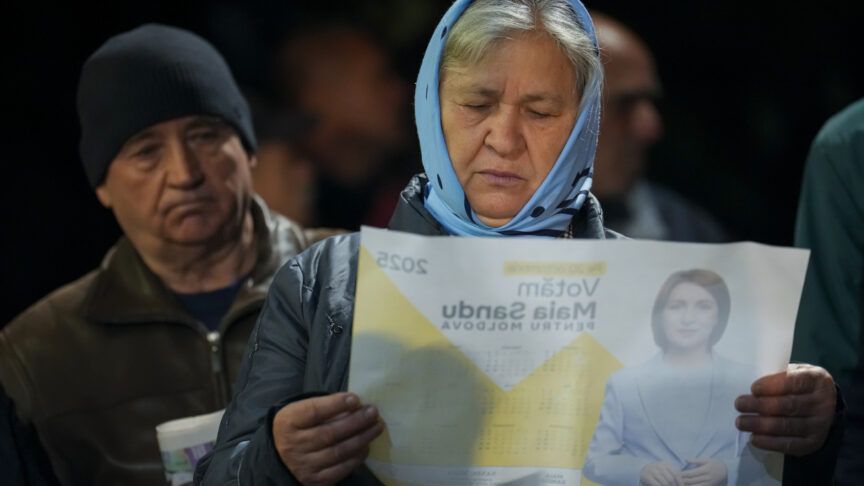How Biden can make a big difference in the Western Balkans
Joe Biden has a longstanding relationship with the Western Balkans. A re-energised US policy on the region could be transformative, especially when working in tandem with the EU
Joe Biden is no stranger to the Balkans. The president-elect began the first of his regular visits to the region back in the early 1990s, to Bosnia and Herzegovina initially, and later to Kosovo. He met political, religious, and community leaders and developed long-standing personal relations with many of them. In confidential letters to these leaders over the years he pleaded for inter-ethnic social cohesion and religious tolerance. Biden spoke passionately in the US senate about the need to arm Bosnians to protect themselves in their fight against Serbs and about the need to remove Slobodan Milosevic and Serbian forces from Kosovo. Biden is also the first high-ranking US official to have expressed condolences to Serbs for the NATO air strikes that took place in March-June 1999.
For many decades, the United States and the European Union shared the same objectives in the Western Balkans, but the relationship deteriorated over the last four years. Donald Trump’s special envoy, Richard Grenell, created havoc and annoyed many in the EU and the region with his foreign policy adventurism, sidelining the EU’s efforts and devising initiatives that had little to do with creating peace and prosperity. Biden’s special relationship with the Balkans should ease the path to restoring transatlanticism and rebooting joint efforts in the Euro-Atlantic integration of the Balkans. Trump’s instrumentalisation of the Balkans – at one point he appeared to claim he had made peace between Serbia and Kosovo – created cynicism across the region about America’s values and goals. It also generated scepticism about Europe’s ability to breathe new life into the ongoing Belgrade-Pristina Dialogue, which aims to improve relations between Serbia and Kosovo. Under the new administration, there will doubtless be a change of tone and approach.
The EU should use the next four years to tackle unfinished business in the Balkans, while there is a foreign policy team in the White House who can bring intricate knowledge to Balkans issues. Brussels should develop a joint strategy with Washington in three key policy areas: the Serbia-Kosovo negotiation process; the European Green Deal and energy diversification; and China.
Serbia-Kosovo negotiation process
The return of a more familiar form of US involvement in the Western Balkans is already being welcomed by many (and feared by some), since the widespread perception is that the EU has been struggling to persuade parties to agree lasting solutions to longstanding problems. This new context will give EU special representative Miroslav Lajcak the chance to speak and act on behalf of the transatlantic community. In Kosovo, the EU-US tandem could steer the country through a peaceful transition of power as it approaches a new general election next month, potentially extending help to a new generation of politicians who have the legitimacy to reach an agreement with Serbia and deliver on it. As a young and fragile democracy, Kosovo has proven that generational change in politics can take place. Last year the Vetevendosje party entered government for the first time on a platform of fighting corruption, bringing about economic recovery, and dealing with the pandemic. But it fell after only a few months, following a motion of no-confidence that had the strong backing of Grenell. This dealt a serious blow to Kosovo’s internal fragile democracy and to the years of the US saying that Kosovars had to learn to build their country and strengthen their democracy. Among other outcomes was a rise in anti-American sentiment in the most pro-American country on earth.
To Belgrade, Washington should make clear to Aleksandar Vucic that it will not support the Serbian president’s growing authoritarianism and attempts to play Europe and America off against each other. If Serbia is ever to build resilience towards Russia in the field of energy and security and resist Russia’s diplomatic influence in the Balkans – in particular with regard to Kosovo’s statehood – it will need help from the EU. Biden’s administration could offer support by empowering democratic and progressive forces that would rely less on Russia and on China’s military aid and more on future-orientated processes guiding the country towards EU-Atlantic integration. A recent poll conducted by the Belgrade Center for Security Policy found that half of Serbs believe there is no democracy in the country.
The European Green Deal and energy diversification
The recent appointment of John Kerry as the US special presidential representative for climate change not only shows the determination of the new administration to respect the Paris Agreement but also that it is prepared to lead global efforts in environmental protection. The EU’s Green Deal aims to take Europe to climate neutrality by 2050. The six aspiring Western Balkans accession countries would also need to undergo transformational changes in order to meet the EU’s admission criteria. The good news is that Balkans countries can already offer attractive assets to support Europe’s energy transition. The new US administration is well placed to support EU and Western Balkans states with the right incentives, such as financial assistance, to make the region more attractive to energy diversification – having multiple sources of supply with less reliance on Russia. If the US places sanctions on TurkStream, a Gazprom-driven project, it would help the Western Balkans countries reduce their dependency on Russian gas. But the US should not stop there.
For much of this century, Washington has exercised a somewhat unimaginative energy policy focused on trying to introduce American LNG into the Balkans energy mix. While this LNG is still expensive (and in any case more expensive than Russian gas), it would not solve the region’s trilemma, which is to: achieve new energy and climate targets; have continuous access to energy; and have energy at an affordable price. South-east Europe (including Bulgaria, Greece, and Romania) is not only characterised by low energy production and consumption, but also by high levels of energy poverty. A significant number of households – up to 40 per cent, according to some estimates – are unable to heat their homes because of a combination of low incomes, low energy efficiency, and high prices. Some countries in the region have not completed the liberalisation of their energy markets; this may increase the cost of energy. Each of the governments will have to decide how to balance the new green technologies they implement to reduce emissions while maintaining public support. They should not be left alone in this process.
Instead of the US focusing heavily on LNG as it did in the last decade, a more nuanced and diversified form of US support for the region could make a huge difference. The rising cost of coal, together with energy efficiency measures and the increasingly affordable costs of renewable energy, mean that more jobs and investment can be created through supporting the energy transition. The region has a well-developed electricity grid, which can be used for transmitting energy from renewables. Helping to modernise the region’s industries based on alternative energy sources along with implementing the latest environmental standards would be a good investment of EU and US taxpayer money. A regional approach through interconnectivity would bring cross-border cooperation and competition for funds, alleviating candidate countries’ administrative capacity limitations in being able to apply for and use EU funds. Working with EU members will boost that capacity.
China
Working together to counter China in the Balkans would help reinvigorate transatlantic relations.
Ostensibly, China will dominate US foreign policy for the foreseeable future. The Western Balkans has been an arena for China asserting itself as a global power for some years now. The Chinese approach has been manifold, ranging from implementing its Belt and Road Initiative, to investing in banks in the region, to developing relations with different non-state actors, to spreading China’s influence not only in politics and the economy but also in society at large. China, Russia, and to a certain extent Turkey have stepped in to fill the void left by a cautious and uncertain Europe and poor US global leadership. Working together to counter China in the Balkans would also help reinvigorate transatlantic relations. Making this a reality will need to amount to more than getting Western Balkans countries to agree to reject Huawei’s role in their domestic communications networks. Countries such as Montenegro would need substantial financial backing in case they default over Chinese debt. The World Bank has projected that, by the end of 2020, Montenegro’s GDP likely declined by 12.4 per cent and public debt rose to 93 per cent of GDP. The Chinese hold 25 per cent of Montenegrin public debt.
While the Western Balkans may not be top of the new US administration’s agenda, Washington can nevertheless play a major role in helping the EU make progress on these key policy areas. The longer-term game would be to help the countries modernise their economies, and their energy and climate policies, and improve their democracies – to which in the past the US has been instrumental and for which reason it still bears the hopes and expectations of many in the Balkans.
The European Council on Foreign Relations does not take collective positions. ECFR publications only represent the views of their individual authors.



